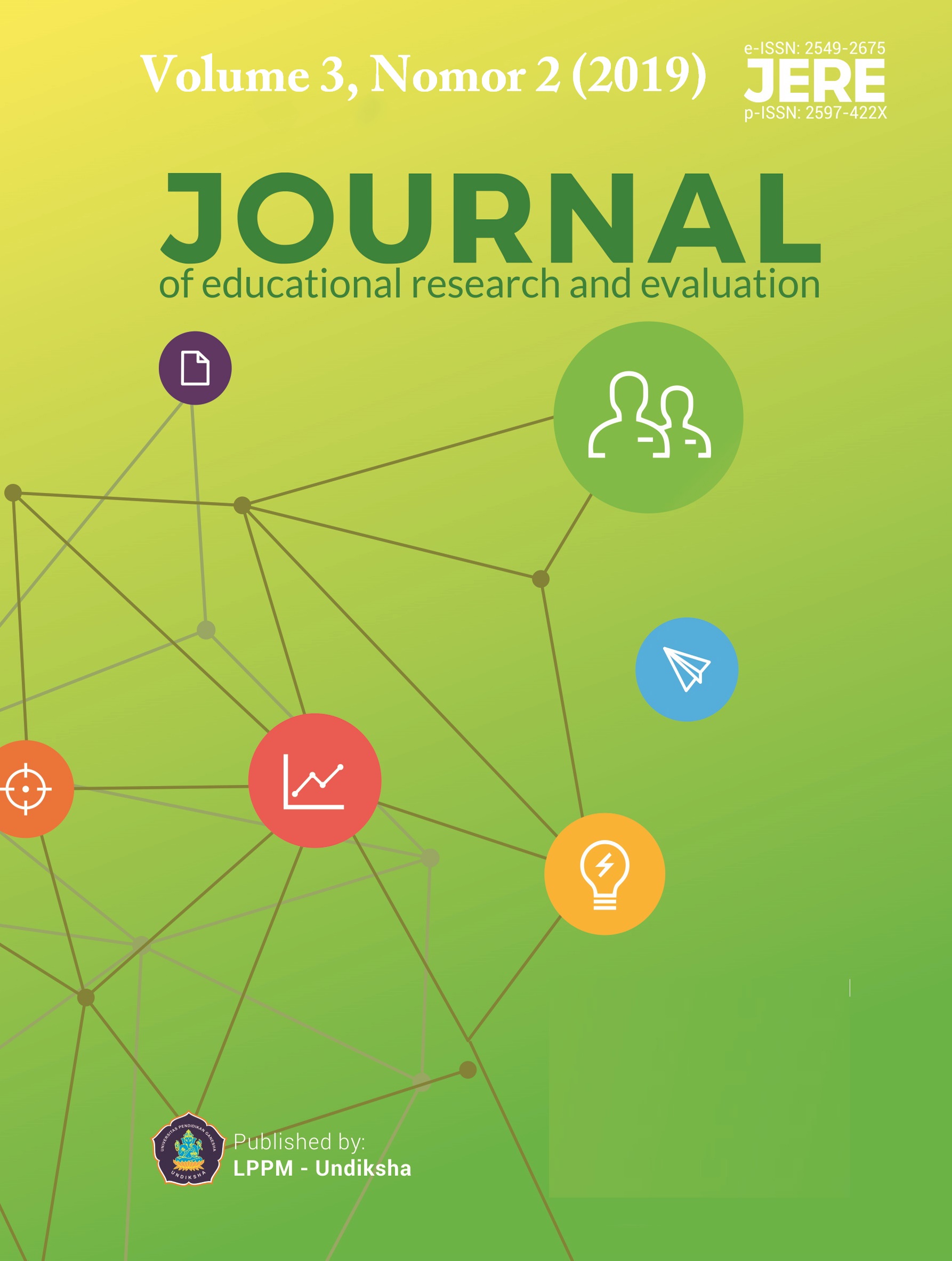Evaluation of Inclusion Thematic Class in Special Needs Students at SD Barusari 01 Semarang
DOI:
https://doi.org/10.23887/jere.v3i2.20979Keywords:
evaluation, thematic learning, inclusive class, students with special needs.Abstract
The purpose of this study was to find out how the implementation of inclusive class thematic learning, especially in terms of planning, implementation, and evaluation of learning outcomes in students with special needs SD Barusari 01 Semarang. The research method used is a qualitative descriptive method. Based on the results of data analysis and discussion it can be concluded that in terms of planning of learning carried out by the teacher includes planning in the form of syllabus, rpp, preparation of learning media and approaches taken by the teacher which later makes ABK students feel comfortable in attending the lesson well planned. The results of the analysis plan for the implementation of thematic learning with a percentage of 99%. For the implementation of learning it is also well implemented, can be seen from teaching and learning activities between teachers and students both in theory and practice mutually supportive. The results of the analysis of the implementation of thematic learning reached a percentage of 85%. For evaluation of learning to run well also seen from the results of the assessment of learning outcomes which reached a percentage of 75%.
References
Arikunto Suharsimi dan Cepi Safruddin Abdul Jabar. 2010. evaluasi progam pendidikan. Jakarta: Bumi Aksara.
Arikunto Suharsimi. 2010. “Prosedur Penelitian Suatu Pendekatan Praktik”. Yogyakarta: Rineka Cipta.
Direktorat Pembinaan Sekolah Luar Biasa, (2007). Progam pendidikan khusus dan layanan pendidikan khusus. Jakarta :Depdiknas
Lexy, M.J.2010. Metodologi penelitian Kualitatif. Bandung: Remaja Rosdakarya
Majid Abdul. 2017. Pembelajaran Tematik Terpadu. Bandung: PT REMAJA ROSDAKARA.
Republik Indonesia.2003. Undang-Undang RI No. 20 Tahun 2003 SISDIKNAS. Jakarta
Republik Indonesia.2007. PERMENDIKNAS NO.41 TAHUN 2007. Standar Proses untuk Satuan Pendidikan Dasar dan Menengah. Jakarta
Downloads
How to Cite
Issue
Section
License
Authors who publish with the Journal of Evaluation and Research in Education (JERE) agree to the following terms:
- Authors retain copyright and grant the journal the right of first publication with the work simultaneously licensed under a Creative Commons Attribution License (CC BY-SA 4.0) that allows others to share the work with an acknowledgment of the work's authorship and initial publication in this journal.
- Authors are able to enter into separate, additional contractual arrangements for the non-exclusive distribution of the journal's published version of the work (e.g., post it to an institutional repository or publish it in a book), with an acknowledgment of its initial publication in this journal.
- Authors are permitted and encouraged to post their work online (e.g., in institutional repositories or on their website) prior to and during the submission process, as it can lead to productive exchanges, as well as earlier and greater citation of published work. (See The Effect of Open Access)











